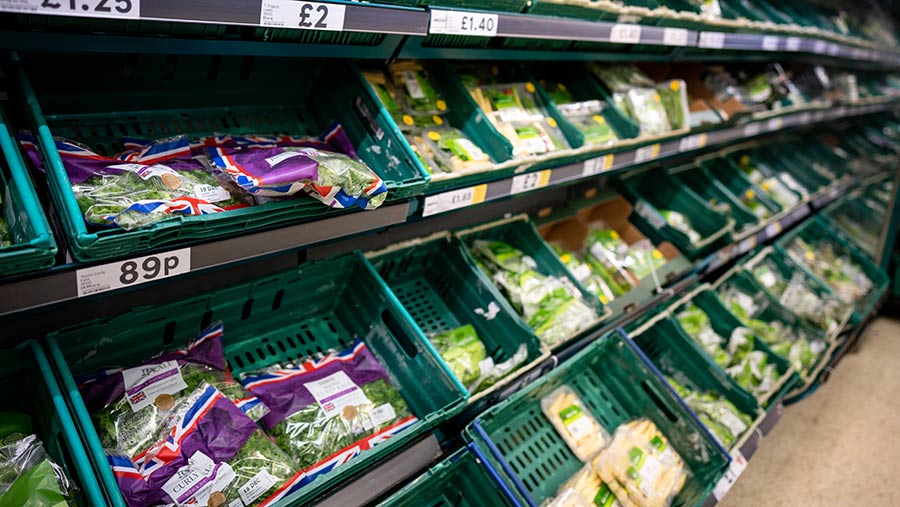Retailers must pay farmers more to offset inflation, says NFUS
 © LIANG/Adobe Stock
© LIANG/Adobe Stock Farmgate prices offered by retailers must rise across all sectors to cover the massive rises in food production costs, the head of NFU Scotland has said.
The union has unveiled the results of a member survey which found Scottish farmers and crofters are set to scale back production on farms in response to unprecedented increases for key inputs.
Over the past year, fertiliser and energy prices have trebled, and prices for fuel and animal feed have doubled, due to several factors, including the war in Ukraine.
See also: Retailers keeping ‘unfair share’ of pig sale price – NFUS
This time last year, farmers were paying 57-58p/litre for red diesel; it is now 124-126p/litre. Crop prices have risen too, although they have fallen a little in recent days.
Farmers do not know whether this year’s harvest will be good and they will have to factor in drying and fuel costs. And the arable sector looks likely to have much higher costs for next season, although returns could be higher.
NFUS president Martin Kennedy said he had asked for continued farm support from the Scottish government to at least current levels, but prices must also rise at the farm gate.
Harsh reality
“The reality is, given where inflation is right now, the end product needs to rise,” he told journalists assembled at a press briefing at the Royal Highland Show on Thursday 23 June.
“The recent inflation figures that came out last week showed a 9.1% rise, but we’re looking, as an industry, at inflation of 100% – and in some cases 250% or more – in some of the input costs we have. That’s a colossal difference.”
Mr Kennedy said he recognised the difficulties consumers were facing with inflation, but if farmers did not receive a little bit more money now from the end product, they would have to receive a much bigger rise in the future to avoid a serious contraction in food production.
“Farmers will adapt and they will contract their businesses, so we need to make sure we can continue to have that product on our shelves,” he added.
“Because if we start losing that infrastructure, that critical mass, the implications further down the track could be even greater. So that end product needs to rise.”
Mr Kennedy said about one-third of food is wasted in the UK because it is too cheap and is taken for granted. “Food needs to be affordable, but not cheap, and that’s what we need governments to understand.”
Pig sector ‘still in crisis’
NFU vice-president and Midlothian pig producer Robin Traquair said the past year had been the most difficult time in living memory for pig farmers.
Covid-19 and the loss of the Chinese market, serious disruption in the supply chain, cost rises in key inputs and a shortage of labour on farms and in abattoirs had left producers battling to run viable businesses.
Mr Traquair said Scotland’s own pig sector was “going through the floor”, yet some supermarkets were still importing 40% of their product from other countries.
